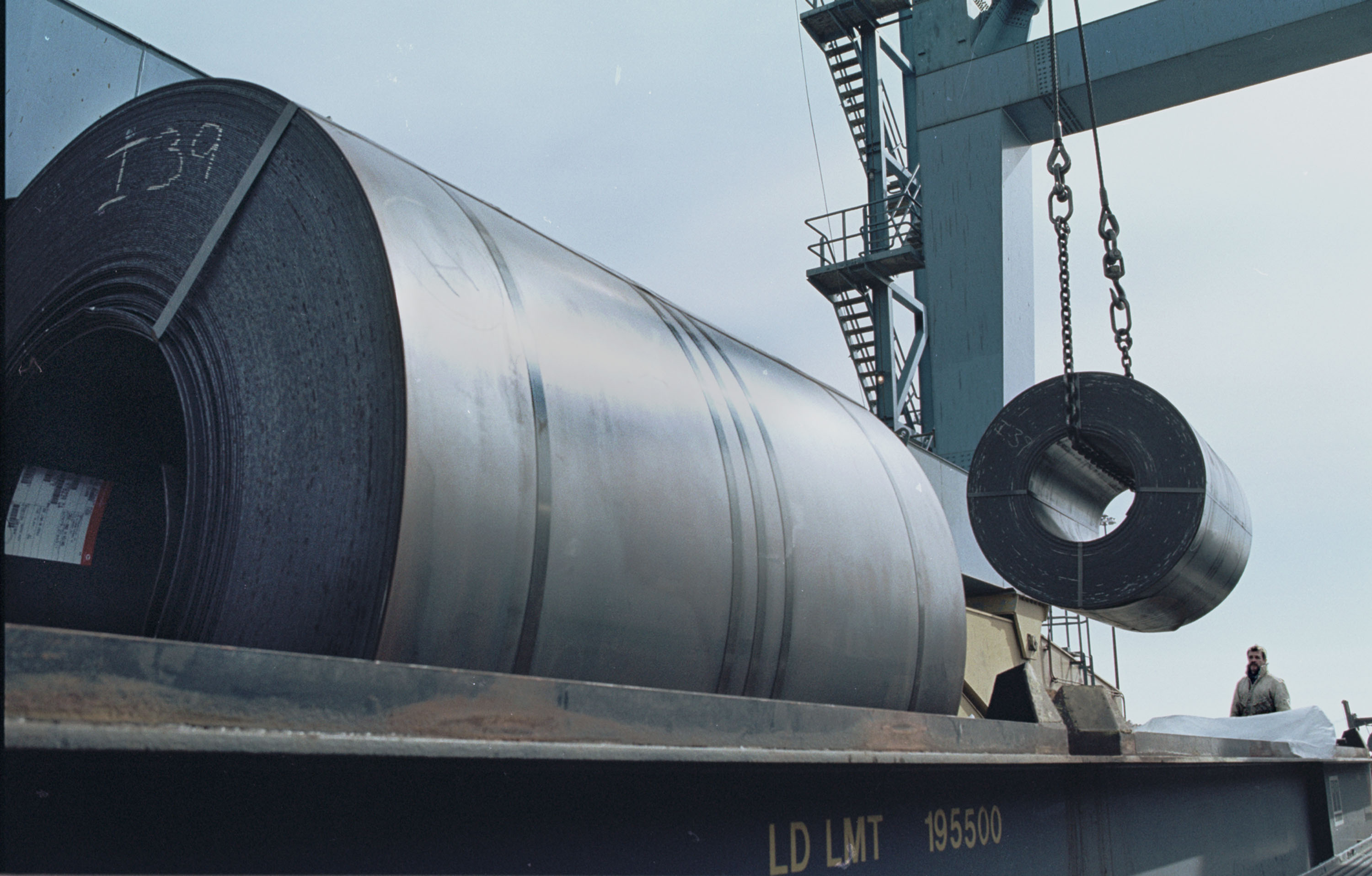Trump widely expected to hit EU with steel and aluminum tariffs by Friday


A free daily email with the biggest news stories of the day – and the best features from TheWeek.com
You are now subscribed
Your newsletter sign-up was successful
Barring an unlikely last-minute deal, President Trump will follow through with his threat to impose tariffs on steel and aluminum from the European Union by Friday, The Wall Street Journal and The Associated Press report. The imposition of 25 percent tariffs on imported steel and a 10 percent levy on aluminum will likely be met by swift retaliatory EU tariffs on motorcycles, bourbon, peanut butter, orange juice, and other exports from America, as well as further damage already raw U.S.-European relations. In late April, Trump delayed the tariffs on the EU, Canada, and Mexico until June 1 to allow space for trade negotiations, but his envoys are frustrated that the EU isn't offering concessions.
Trump cites national security as the rationale for his tariffs, and EU officials have said they will respond with levies against up to $3.3 billion in U.S. exports using a World Trade Organization (WTO) mechanism for inappropriate protectionism. And if the EU responds, Axios says, "that move would effectively give a green light for other WTO members to retaliate. Nobody wants to be considered a bad actor — but if the EU does it, they're considered a good global actor, so others are more likely to follow." Such a trade war would drive up costs for consumers. Trump isn't expected to impose the tariffs on Canada and Mexico Friday.
A free daily email with the biggest news stories of the day – and the best features from TheWeek.com
The Week
Escape your echo chamber. Get the facts behind the news, plus analysis from multiple perspectives.

Sign up for The Week's Free Newsletters
From our morning news briefing to a weekly Good News Newsletter, get the best of The Week delivered directly to your inbox.
From our morning news briefing to a weekly Good News Newsletter, get the best of The Week delivered directly to your inbox.
Peter has worked as a news and culture writer and editor at The Week since the site's launch in 2008. He covers politics, world affairs, religion and cultural currents. His journalism career began as a copy editor at a financial newswire and has included editorial positions at The New York Times Magazine, Facts on File, and Oregon State University.
-
 American universities are losing ground to their foreign counterparts
American universities are losing ground to their foreign counterpartsThe Explainer While Harvard is still near the top, other colleges have slipped
-
 How to navigate dating apps to find ‘the one’
How to navigate dating apps to find ‘the one’The Week Recommends Put an end to endless swiping and make real romantic connections
-
 Elon Musk’s pivot from Mars to the moon
Elon Musk’s pivot from Mars to the moonIn the Spotlight SpaceX shifts focus with IPO approaching
-
 TikTok secures deal to remain in US
TikTok secures deal to remain in USSpeed Read ByteDance will form a US version of the popular video-sharing platform
-
 Unemployment rate ticks up amid fall job losses
Unemployment rate ticks up amid fall job lossesSpeed Read Data released by the Commerce Department indicates ‘one of the weakest American labor markets in years’
-
 What a rising gold price says about the global economy
What a rising gold price says about the global economyThe Explainer Institutions, central banks and speculators drive record surge amid ‘loss of trust’ in bond markets and US dollar
-
 US mints final penny after 232-year run
US mints final penny after 232-year runSpeed Read Production of the one-cent coin has ended
-
 Warner Bros. explores sale amid Paramount bids
Warner Bros. explores sale amid Paramount bidsSpeed Read The media giant, home to HBO and DC Studios, has received interest from multiple buying parties
-
 Gold tops $4K per ounce, signaling financial unease
Gold tops $4K per ounce, signaling financial uneaseSpeed Read Investors are worried about President Donald Trump’s trade war
-
 Electronic Arts to go private in record $55B deal
Electronic Arts to go private in record $55B dealspeed read The video game giant is behind ‘The Sims’ and ‘Madden NFL’
-
 New York court tosses Trump's $500M fraud fine
New York court tosses Trump's $500M fraud fineSpeed Read A divided appeals court threw out a hefty penalty against President Trump for fraudulently inflating his wealth
